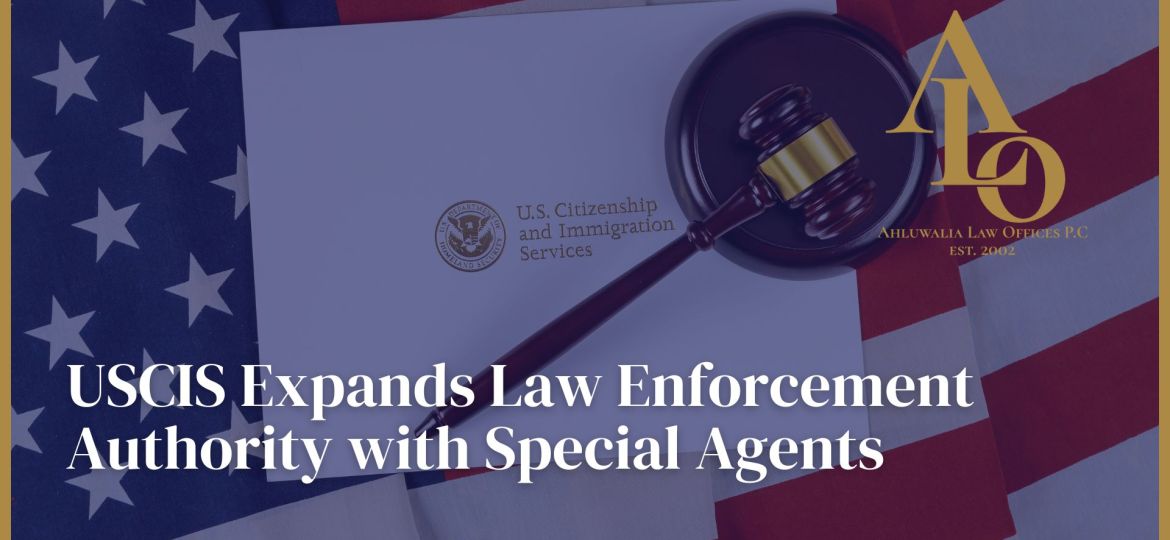
On September 4, 2025, U.S. Citizenship and Immigration Services (USCIS) announced a significant change: the agency will now have expanded law enforcement authority through the creation of USCIS special agents (classified as 1811 officers). This development follows the Department of Homeland Security’s final rule delegating arrest, investigation, and enforcement powers to USCIS.
What This Means for Immigrants and Visa Holders
For years, USCIS has overseen immigration benefits adjudication, fraud detection, and national security vetting. With this rule, USCIS officers will now be empowered to:
- Investigate civil and criminal immigration law violations within USCIS jurisdiction
- Make arrests, carry firearms, and execute search and arrest warrants
- Order expedited removal in certain cases
- Prosecute individuals engaged in immigration fraud
This shift will allow USCIS to conduct investigations from start to finish, rather than referring cases to Homeland Security Investigations (HSI) within U.S. Immigration and Customs Enforcement (ICE).
National Security and Fraud Prevention
USCIS Director Joseph B. Edlow emphasized that the agency has always had an enforcement role, but the new authority enhances its ability to uphold the integrity of the immigration system. By directly targeting fraud and abuse, USCIS can more efficiently process legitimate applications while deterring attempts to exploit the system.
The expanded powers also enable USCIS to better support DHS priorities, allowing ICE to focus on transnational crime and removals, while USCIS special agents address fraud and enforcement tied to immigration benefits.
Recruitment and Training of Special Agents
USCIS will begin recruiting and training these new officers to carry out their additional law enforcement duties. The rule becomes effective 30 days from its Federal Register publication, signaling a rapid implementation.
What You Should Know
Foreign nationals, visa holders, and investors navigating the U.S. immigration system should be aware of this heightened enforcement environment. While the vast majority of applicants pursue lawful benefits in good faith, USCIS will now have broader authority to investigate and prosecute those suspected of fraud or misrepresentation.

